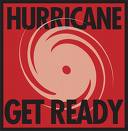
HURRICANE EMERGENCY INFORMATION:
Emergency: 911 Help Line
Kleberg County Emergency Management: 361-595-8527
Kleberg County Sheriff: 361-595-8500
Evacuations and Special Health Care Needs: Dial 211 to register for a ride.
Texas Online Emergency Portal: [ The Official Website of the State of Texas ]
American Red Cross: 1-866-438-4636 [ Red Cross ]
24 HOUR WEATHER INFORMATION:
Local Area Phone Line: 1-361-814-9463
NWS 24-Hour Phone Recording: 1-361-289-1861
Emergency Broadcast Information: KLUX Radio 89.5 FM
NOAA Weather Radio Stations: [ Stations with Live Streaming Audio ]
Hurricane Information Website: National Hurricane Center
TEXAS ROAD INFORMATION:
TXDOT Road Conditions: 1-800-452-9292 [ Texas Department of Public Safety - Contacts ]
TXDOT Corpus Christi Offfice: 1-361-808-2300
Texas Highway Patrol Roadside Assistance:1-800-525-5555
BEFORE A HURRICANE THREATENS - MAKE A PLAN: [ Local Emergency Planning Committees - Contacts]
- Complete your personal hurricane plan and survival kit for your family.
- Review your employer's hurricane plan; know what your responsibilities will be during a hurricane threat.
- Learn the storm surge history and flood potential of your area. Do you need flood insurance?
- Review all of your insurance policies to ensure they are up to date and provide adequate coverage.
- Take a written inventory of all your belongings. Videotape or take pictures of the inside and outside of your home.
- Inspect your home to determine how well it will stand up to major hurricane winds.
- Keep your yard free of debris; trim dead branches from trees.
- If you do not have pre-installed shutters, measure all windows for plywood covers. Pre-cut the plywood and install anchors. Reinforce all entryways and garage door.
- If you own a boat determine how you will protect it.
- If you plan to evacuate, determine in advance where you will go, how you will get there and where you will stay.
WHEN A HURRICANE THREATENS:
- Designate a "safe-room", usually an interior location on the lowest floor away from windows.
- Close all windows; secure & wedge sliding glass doors to prevent them from lifting from their tracks.
- Turn your refrigerator and freezer to the coldest setting.
- Freeze water in plastic soda bottles for cooling food in your refrigerator & freezer.
- Further prepare water supplies by filling water containers including bathtubs.
- Turn off your gas appliances at their individual inside valves.
- Install shutters or plywood for all windows; brace entryways and garage door.
- Clear your yard of potential flying debris, including lawn furniture, toys, trash cans, etc.
- Prepare your pool by lowering water level no more than one foot to accommodate heavy rains (do not drain the pool completely).
- Add extra chlorine; cover the filtration system and turn off electricity to pool equipment.
- Gas up your car & get extra cash.
- If advised to evacuate, be prepared to leave.
DURING THE HURRICANE:
- Stay inside and stay calm.
- Stay away from windows & doors.
- If you lose electricity, listen to local news on your TV-receiver radio for continuous coverage of the hurricane.
- Listen to your NOAA Weather Radio for additional severe weather or emergency information.
AFTER THE HURRICANE:
- If you have no electricity, continue to listen to local news on your tv-reciever radio fro continuous coverage of recovery efforts.
- Listen to your NOAA Weather Radio for additional emergency information.
- Do not use public water for cooking or drinking until you are notified it is safe.
- If your telephone is working, use it only for an emergency.
- Do not connect a generator to your home wiring.
- Stay away from downed power lines; do not cut trees that are touching or near power lines.
- Keep children from playing in standing water & make sure they are wearing shoes.
- Videotape or photograph your home, then make temporary repairs to prevent further damage.
- If needed, clearly mark the street adress on your home so insurance adjusters and repair crews can identify it.
- Document any repairs made and keep all receipts for every transaction.
TROPICAL TERMS:
Tropical Wave - A weak area of low pressure in the trade winds with unorganized clouds, showers and thunderstorms. A common phenomenon in the tropics.
Tropical Disturbance - A weak area of low pressure with semi-organized clouds, showers & thunderstorms.
Tropical Depression - A strengthening area of low pressure with winds of 38 mph or less & more organized clouds, showers & thunderstorms.
Tropical Storm - A named, strengthening area of low pressure with winds between 39-73 mph; more organized clouds, showers & thunderstorms rotating around a center or "eye".
Hurricane - A named, intense are of low pressure with sustained winds of 74 mph or more; organized clouds, showers & thunderstorms rotating around a center or "eye".
Hurricane or Tropical Storm Watch - Hurricane or tropical storm conditions are possible within 36 hours across a specified coastal area. All precautions should be taken immediately.
Hurricane or Tropical Storm Warning - Hurricane or tropical storm conditions are expected within 24 hours across a specified coastal area. All precautions should be finalized.
EMERGENCY SUPPLY LIST:
- Your family hurricane survival plan.
- Your pet's hurricane survival kit.
- Battery operated radio, TV, alarm clock, NOAA Weather Radio, flashlights & extra batteries.
- Bottled drinking water: one gallon per person, per day.
- Non-perishable canned foods.
- Manual can opener.
- Cash & credit cards.
- First aid kit.
- Special items for infants, elderly or disabled family members.
- Blankets, pillows, sleeping bags, & wet weather clothing.
- List of family contacts & physicians.
- Personal medications & prescriptions.
- Sanitary supplies.
- Insurance policies, inventory of personal property, still/video camera for documentation & extra film & videotapes.
- Important documents, proof of occupancy of residence (utility bill) in water proof container.
- Cellular phone & important phone numbers.
- Camping stove or gas grill.
- Cards, books or small games.
- Pocket knife.
- Sterno.fuel/matches/fire extinguisher.
- Cooking utensils, garbage bags.
- Disposable plates, cups & utensils.
- Chlorine bleach, extra clothing.
- Mosquito repellant & sunscreen.
- Clean up & repair supplies.
EVACUATION INFORMATION - There are three places to go if you evacuate:
1. A friend or relative's home in a safer location within South Texas.
2. A friend or relative's home or hotel outside ot South Texas.
3. A designated public shelter, probably outside South Texas.
You may also have to evacuate if you live in a mobile home, manufactured home, recreational vehicle or low-lying area prone to flooding. Be advised, shelters will not allow firearms, alcohol and animals (unless it is a service animal). Take you hurricane survival kit with you, including important documents. Turn off the utilities and seal your home as tightly as possible. Remember, do leave your pets behind if you evacuate. Though Texas laws do not require mandatory evacuation, residents are urged to follow the advice of local authorities. Watch your local television stations for updated information on areas to evacute and recommended evacuation routes.
SOME IMPORTANT WEBSITES:
FEMA National Flood Insurance Program: [ Find Out More ]
TWIA Texas Windstorm Insurance Association: [ Find Out More ]
Texas Department of Insurance: [ Find Out More ]





